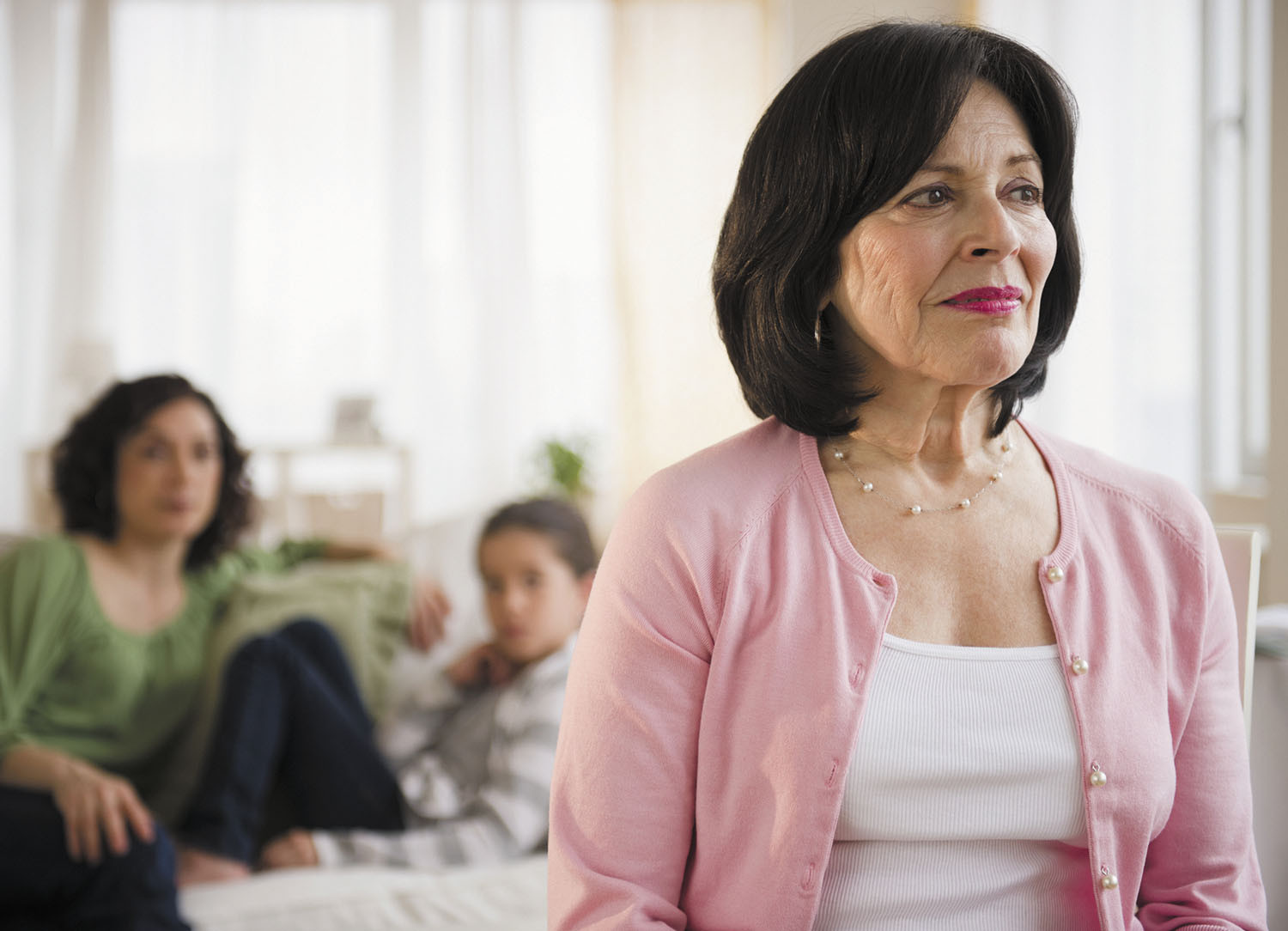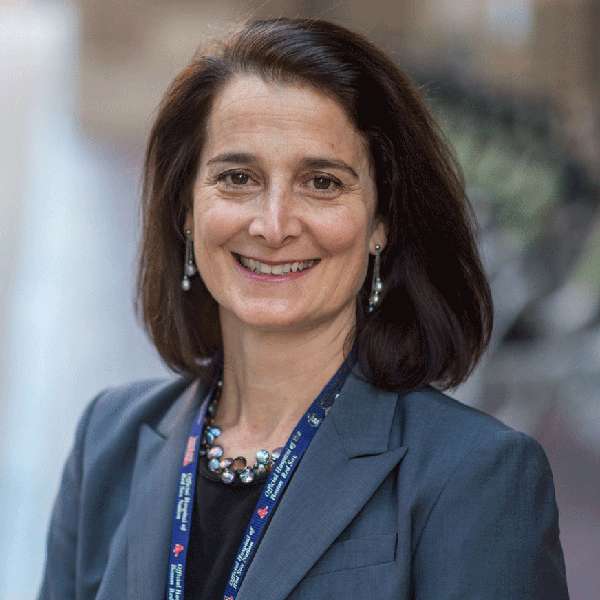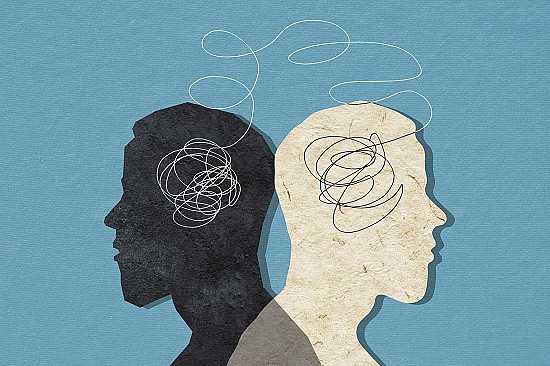Silent suffering
Conquering cancer can be a double-edged sword when survivor's guilt creeps in. Here's how to move forward.
- Reviewed by Toni Golen, MD, Editor in Chief, Harvard Women's Health Watch; Editorial Advisory Board Member, Harvard Health Publishing; Contributor, and
- Hope Ricciotti, MD, Editor at Large, Harvard Women's Health Watch

After your cancer diagnosis, you put your chin down and plowed through the task at hand — beating it. But you didn't necessarily expect to be smacked with another huge challenge soon after: survivor's guilt.
This psychological phenomenon, which includes strong, persistent feelings of sadness and remorse, is an unwelcome intrusion at the end of cancer treatment — a time that should, by all accounts, be joyful. And it doesn't just include guilt itself, but also an overwhelming sense of distress, helplessness, and injustice. But the tension between trauma and relief is exactly what poses difficulty to scores of survivors who'd hoped to be free of cancer's consequences, Harvard experts say.
"Survivor's guilt is a lot more common than we think," says Cristina Pozo-Kaderman, a clinical psychologist in the Department of Psychosocial Oncology and Palliative Care at Harvard-affiliated Dana-Farber Cancer Institute. "Patients who express it are often met with others who minimize their feelings and tell them to just feel happy that they're okay."
"But admitting survivor's guilt doesn't mean you don't feel grateful," she adds. "Those emotions coexist."
Rising ranks
Recent innovations in cancer treatment have led to unprecedented numbers of survivors. Thanks to a 32% drop in the cancer death rate between 1991 and 2019, more than 18 million people in the United States now count themselves as cancer survivors, according to a 2022 report by the American Association for Cancer Research. Their ranks increased by more than one million over the past three years alone and are expected to rise to 22.5 million by 2032, according to the National Cancer Institute (NCI).
Cancer survivors comprise everyone who's living after a cancer diagnosis, including those still getting treatment. (See "Worried about cancer coming back?".) Nearly 70% of survivors have lived five or more years since their diagnosis, and 47% have lived 10 or more years, according to the NCI. About 67% of survivors are 65 and older.
But this advance presents a double-edged sword. More survivors means more battle-scarred folks who've bonded with others facing cancer — and feel bereft when some of their compatriots die and they live.
Survivor's guilt isn't exclusive to cancer, of course. It can also strike people who've lived through other types of traumatic experiences that claimed others, including natural disasters, mass shootings, or military conflict.
Pozo-Kaderman points out that survivors may also face guilt that they
- can go on to have children when others can't
- had access to good medical care when others didn't
- burdened their family and friends during the rigors of treatment
- tested positive for a cancer-causing genetic mutation that may jeopardize family members.
"It's not just feeling bad you survived, it's many thoughts and feelings that go along with it," Pozo-Kaderman says.
Worried about cancer coming back?It's a feeling like no other: after months or even years of grueling therapy such as surgery, chemotherapy, radiation, or immunotherapy, you've been told there's no evidence of cancer left in your body. But will it come back? The fear of recurrence is front and center for most cancer survivors, says Dr. Katharine Esselen, a gynecologic oncologist at Beth Israel Deaconess Medical Center. Not only can it steal your joy, but about 7% of cancer patients develop severe, disabling fear marked by dark thoughts and distorted worries. "Fear of recurrence is perhaps the biggest emotional hurdle a cancer patient deals with after treatment ends," Dr. Esselen says. "Once you've been diagnosed with a disease that's completely out of your control, you realize that that anything is possible — and it can happen again." Worrying your cancer will return is normal, especially during the first year after treatment. Certain events can trigger fears, such as scheduling follow-up medical visits and scans (also known as "scanxiety"); feeling symptoms similar to those you had when you were first diagnosed; and learning that someone you know with cancer has died. "This is very normal and expected," says Cristina Pozo-Kaderman, a clinical psychologist at Dana-Farber Cancer Institute. "But if that fear of recurrence becomes immobilizing — not just a couple of days before follow-ups or scans, but weeks before — then you should get help." Harvard experts also offer these tips: Be open about your worries. Expressing strong feelings can release their power over you. "It's important not to bury your fears," Dr. Esselen says. Control what you can. Ask your doctor what you can do to reduce the chances your cancer will return, and keep up with follow-up appointments. "Taking care of yourself, in many cases, reduces your risk of recurrence and developing other health conditions," Dr. Esselen says. "Doctors do the necessary tests and look out for you so that if it does come back, there are other options for treatment." Stay active. Get back to doing things you enjoyed before cancer, whether that's working, pursuing hobbies, or spending time with family and friends. "You've worked hard to get to this point, so make choices that make you feel happy and fulfilled," Dr. Esselen says. "Surrounding yourself with people and things you love doing reminds you how to adjust to a new normal." |
Who's more at risk?
Predicting who will be affected by survivor's guilt is challenging since many factors may contribute, Harvard experts say. But you could be more prone because of unusual circumstances: perhaps your family has been shaken by the deaths of multiple members from hereditary forms of cancer. Or maybe you beat a type of cancer with historically low survival rates.
According to a 2019 study in the Journal of Psychosocial Oncology that polled 108 lung cancer survivors, 55% reported feeling guilty. (The five-year survival rate for lung cancer is less than 19%, according to the American Lung Association.) "Guilt scores" among participants with the highest levels of guilt revealed five recurring themes, including frequently wondering, "Why not me?"
"I've witnessed wonderful friendships develop through cancer treatment, and when patients have friends with a similar diagnosis who don't survive, they're likely at higher risk of survivor's guilt," says Dr. Katharine Esselen, a gynecologic oncologist at Harvard-affiliated Beth Israel Deaconess Medical Center.
Feeling pressure to do something that confers "meaning" to an otherwise terrible experience can also pile on to survivor's guilt. But Pozo-Kaderman says it's perfectly okay if you're not inclined. "If you want to, that's great, but it doesn't mean you have to," she says. "You survived, and that's enough. You don't now have to do something to validate that you survived. It's a really heavy burden."
Ways to move forward
It's important not to let survivor's guilt fester. Downstream effects can include mood problems, trouble concentrating or sleeping, anger and irritability, loss of motivation, and a sense of detachment. Harvard experts offer these coping strategies:
Realize your feelings are normal. "It's important to not beat yourself up about them, to accept that this is the normal course of what you're going through," Dr. Esselen says.
Take time to grieve. Time may not heal all wounds, as the adage goes, but it can help you accept you couldn't have done anything to alter other cancer patients' outcomes.
Find ways to work through grief. Some people plant a tree for a friend who died or participate in charity events. Others channel their feelings through art, music, or photography. "There's no one strategy that works for everyone," Pozo-Kaderman says.
Seek support. In-person or online support groups can help you connect with others who know only too well the path you're on. Some groups are geared toward survivors of certain ages or diagnoses. "Programs with other survivors can often help you acknowledge feelings of guilt, just by having a name for the feeling," Pozo-Kaderman says. "It's very validating, and often you'll problem-solve together to tackle the issues you're dealing with."
Get help. Pervasive sadness, anxiety, or depression signals a need for counseling, Dr. Esselen says. A therapist can also help you explore any underlying contributors to your feelings of guilt.
Image: © JGI/Jamie Grill/Getty Images
About the Author

Maureen Salamon, Executive Editor, Harvard Women's Health Watch
About the Reviewers

Toni Golen, MD, Editor in Chief, Harvard Women's Health Watch; Editorial Advisory Board Member, Harvard Health Publishing; Contributor

Hope Ricciotti, MD, Editor at Large, Harvard Women's Health Watch
Disclaimer:
As a service to our readers, Harvard Health Publishing provides access to our library of archived content. Please note the date of last review or update on all articles.
No content on this site, regardless of date, should ever be used as a substitute for direct medical advice from your doctor or other qualified clinician.















